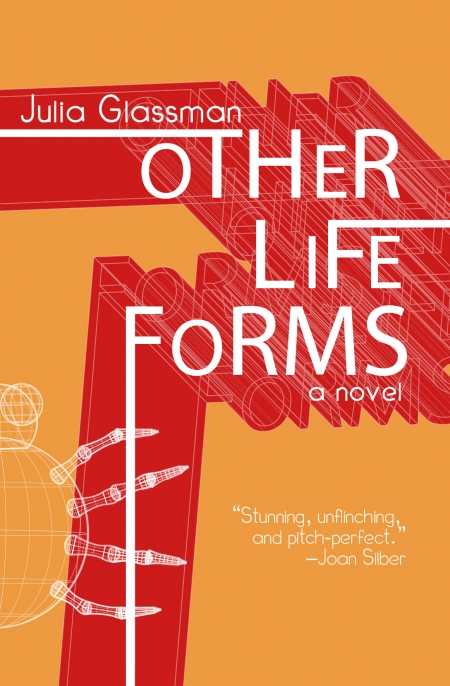
Other Life Forms
All good novels take on a life of their own, and Other Life Forms is no exception. The title could refer to new life that forms in the wake of emotional loss or to different kinds of life, be they virtual or actual. The story belabors the latter, though it’s the former that’s far more touching as we see the lead character, Sylvie, try to take control of her own life and transform from “the plain and shadowy girl” she’s always been “into something brighter.”
Sylvie has followed her college boyfriend, Simon, out west to Emerald, California. In one of the more implausible plot points, this is the one place that will hire him and the one place she least wants to be—her hometown. He takes a job but remains in thrall to the game world in which he is master of other life forms “prodded into sentience with a few extra lines of code” and that come to seem more real to him than even his girlfriend. The author weaves in the story of their relationship as Sylvie gets involved in a start-up magazine at the artsy cafe where she works. She also becomes involved with an out-of-towner named Dan and with a local coworker, Dennis. Although both guys help her find herself, it isn’t until Sylvie resumes sculpting that she forms an identity for herself durable enough to stand up to Simon’s addiction, Dan’s abuse, and Dennis’s disinterest.
This is Julia Glassman’s first novel. She adroitly handles themes of loss, loneliness, and honesty in an affecting story that is bound to resonate with those who have “made the transition from college life to twenty-something stagnation.” However, unlike a game, where “anything you can think up is feasible,” novels have an intrinsic logic that has to be credible enough for the reader to buy into the story. At times, the author’s hand is too visible, as in lines like “what a fantastic accident finding Lydia’s [cafe] had been.” Although Sylvie’s self-preservation instinct kicks in, she makes such dubious choices that it’s hard not to believe that the author is simply fashioning “a human woman” much as a game master tells online creatures what to do rather than letting characters live and breathe on their own.
Reviewed by
Trina Carter
Disclosure: This article is not an endorsement, but a review. The publisher of this book provided free copies of the book to have their book reviewed by a professional reviewer. No fee was paid by the publisher for this review. Foreword Reviews only recommends books that we love. Foreword Magazine, Inc. is disclosing this in accordance with the Federal Trade Commission’s 16 CFR, Part 255.
